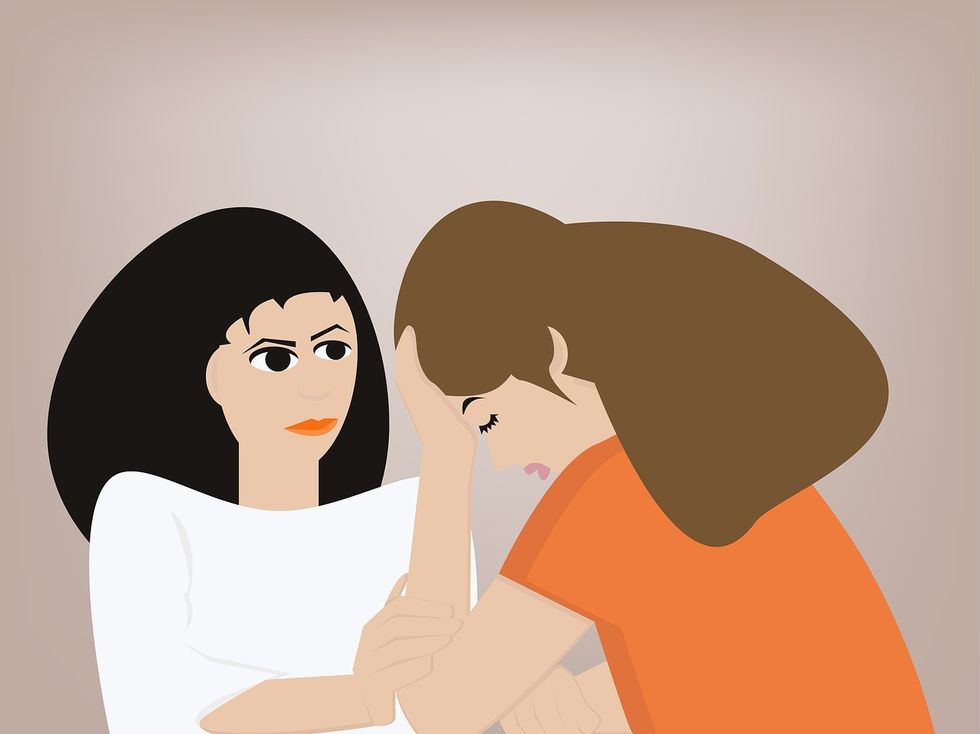With all of the stresses in modern life, it is no surprise that anxiety and other mental illnesses are on the rise. While we can try to combat depression, suicide, etc with medication and recovery centers, it is important to recognize the larger issue. As a society we generally sweep issues regarding mental health under the rug. A diagnosis of an anxiety disorder or depression or psychosis is something most people keep hidden, even more actively than they do with more physically related health issues. The problem with keeping something even this personal hidden, is it becomes an entirely taboo topic.
Now that we're in college, all of my childhood friends have the courage to admit to their bouts of anxiety and depression that they experienced from elementary to high school. It's incredible to me how secretive we were about it when we were experiencing those problems. Looking back, we all could have helped each other immensely, specifically by encouraging each other to seek help. Beyond every day anxiety issues, there were also several cases of eating disorders and more serious illnesses. No one discussed them until after they had been treated or they no longer practiced harmful behavior, but it was unavoidable to consider the danger in experiencing these struggles in secret.
If people I knew in school were reluctant to tell their friends I highly doubt that they confided in their parents or other trusted adults. It is important that kids are taught that mental health struggles are normal and nothing to be ashamed of. If they are taught otherwise, how can we expect kids to seek help when they truly need it. Less than half of those that experience any form of mental illness received help or treatment in 2017. Without treatment or help, even though mental illnesses can be manageable, they can prevent people from living a happy and fulfilled life.
Arguably as important as treatment, is implementing preventative measures for mental illnesses. If kids are more capable of managing their emotions from early on and are already open to the idea of therapy or asking for help, mental health issues will be easier to handle if they do arise. One preventative measure is ensuring that children who have a hereditary history of mental illness are fully educated. A familial history of any mental illness indicates a higher likelihood that an individual will experience any form of mental illness. This is important information because any history at all can increase the potential of serious mental health struggles. Further, triggers such as substance abuse or unhealthy emotional practices can cause mental illness to arise in individuals who have familial history of psychosis or other illnesses.
Although it is a big and incredibly important issue, mental health does not have to be the taboo and scary subject we make it out to be. Simple conversations with children at a young age can make them aware of their family history and the reality that it is perfectly okay to ask for help. Daily conversations with friends and peers can make simpler forms of mental illness such as anxiety more manageable and less stigmatized. Small steps like these can lower the too large percentage of American adults who suffer form forms of mental illness.
















